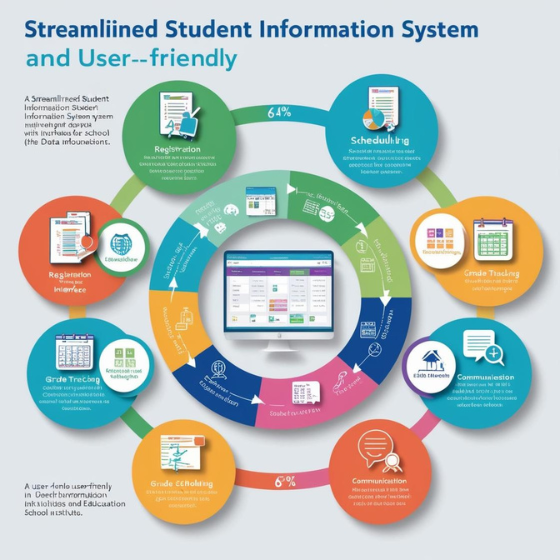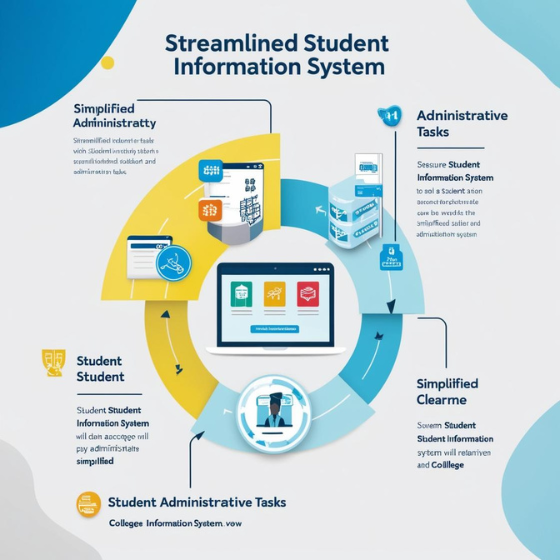Online Learning Platforms: Democratizing Education
Did you know that the global e-learning market is expected to reach $375 billion by 2026? This statistic highlights how online learning has evolved into a dominant force in education. In this blog, we’ll explore how online learning platforms are democratizing education, making it more accessible, flexible, and affordable for people around the world. By the end of this post, you’ll understand how these platforms are changing the way we learn, and how businesses can leverage them for professional development and growth.
What Are Online Learning Platforms?
Online learning platforms are websites or software applications that provide access to educational resources and courses over the internet. These platforms are reshaping how we approach education by removing geographical, financial, and logistical barriers. But how exactly are they democratizing education? Let’s break it down:
- Accessibility for All
One of the most significant advantages of online learning platforms is their universal accessibility. Anyone with an internet connection can access a wealth of educational content, regardless of their location. This global reach ensures that learners from all backgrounds can access quality education. - Cost-Effective Education
Traditionally, education could be expensive. Tuition fees, textbooks, and commuting costs often put education out of reach for many. With online learning, these barriers are eliminated. Platforms like Coursera and edX offer affordable or even free courses, democratizing access to high-quality education. - Flexible Learning Experience
Online learning allows learners to choose their own pace. Whether you’re a full-time student or a working professional, these platforms offer the flexibility to learn at your convenience. This self-paced learning option is a key feature of online education.
The Key Benefits of Online Learning Platforms
Online learning platforms have transformed the education sector in several ways. Here are some of the key benefits they offer:
1. Flexibility and Convenience
Online education is highly flexible. Students can access courses at any time and from anywhere, making it easier to fit learning into their busy schedules. Whether you’re balancing work, family, or other commitments, you can learn at your own pace and convenience.
2. Global Reach and Diverse Communities
With online learning, people from different cultures, backgrounds, and time zones can collaborate. This diversity enriches the learning experience, as students bring different perspectives to the table. For example, a course in digital marketing might include students from various countries, offering a unique opportunity for cross-cultural exchange.
3. Affordable and High-Quality Education
Thanks to the affordability of online platforms, anyone can access high-quality courses. Leading universities like Harvard and MIT offer free or low-cost courses online, making it possible for people to gain education from some of the world’s best institutions without breaking the bank.
4. Personalized Learning Paths
Another advantage of online learning is the ability to tailor your educational experience. Learners can choose courses that suit their interests, career goals, or academic needs. Many platforms also provide certifications, which can be valuable when applying for jobs or seeking promotions.
How Businesses Can Benefit from Online Learning Platforms
Businesses can also harness the power of online learning platforms to foster growth and development within their teams. Here’s how:
1. Employee Training and Development
Online learning platforms provide businesses with an affordable and efficient way to train employees. Whether it’s improving technical skills, soft skills, or learning new tools, businesses can equip their teams with the knowledge and skills needed to succeed.
2. Cost-Effective Professional Development
Unlike traditional training methods, which can be expensive, online learning is much more cost-effective. Companies can provide their employees with access to a wide range of courses at a lower cost. This is especially beneficial for small and medium-sized enterprises that may have limited training budgets.
3. Boosting Employee Retention
Offering employees opportunities to grow and develop can improve job satisfaction and increase retention rates. When employees have access to learning opportunities, they are more likely to feel valued and supported, which can lead to greater loyalty to the company.
4. Access to Specialized Skills
In today’s rapidly changing business environment, companies need to stay ahead of the curve. Online learning platforms offer courses on niche subjects such as blockchain, artificial intelligence, and data science, allowing businesses to upskill their employees with the latest knowledge and technology.
Real-Life Examples of Online Learning Platforms Driving Innovation
Let’s take a look at how companies and individuals are utilizing online learning platforms to drive innovation and growth:
Case Study 1: A Tech Giant Upskilling Its Workforce
A leading technology company wanted to ensure its employees were up-to-date with the latest trends in cloud computing, data science, and artificial intelligence. By partnering with various online platforms, the company provided employees with access to relevant courses, resulting in a more skilled and productive workforce.
Case Study 2: A Startup’s Affordable Training Strategy
A small startup wanted to provide its employees with training in digital marketing, customer service, and business operations. By using affordable online courses, the company was able to offer professional development without straining its budget. This helped the startup grow rapidly and attract top talent looking for a learning-oriented environment.
Overcoming Challenges in Online Learning
Despite the many advantages, there are some challenges that learners and businesses face when using online learning platforms. Let’s explore some of these challenges and potential solutions:
1. Maintaining Motivation and Discipline
Online learning requires a high level of self-discipline. To help with this, many platforms incorporate gamification, interactive content, and peer engagement features. These tools help keep learners motivated and on track.
2. Limited Hands-On Learning
Certain fields require practical experience. To overcome this, many online learning platforms offer hybrid models that combine online lessons with in-person workshops or simulations. This provides a more comprehensive learning experience.
3. Technology Barriers
Access to reliable technology can be a barrier for some learners. However, many platforms are optimizing their content to work on a variety of devices, ensuring a broader audience can engage with the material.
The Future of Online Learning Platforms
As we’ve seen, online learning platforms are not only changing the way we access education but also making it more accessible and affordable. The future of education lies in the continued growth and development of these platforms. With more people and businesses embracing online learning, the potential for educational transformation is limitless.
At Sodio, we understand the importance of adapting to technological advancements. Whether you’re looking to develop custom software, build mobile apps, or integrate cutting-edge technologies like blockchain and AI into your business, our team is here to help you stay ahead of the curve. Contact us today to learn how we can help you leverage the power of technology for your business.







